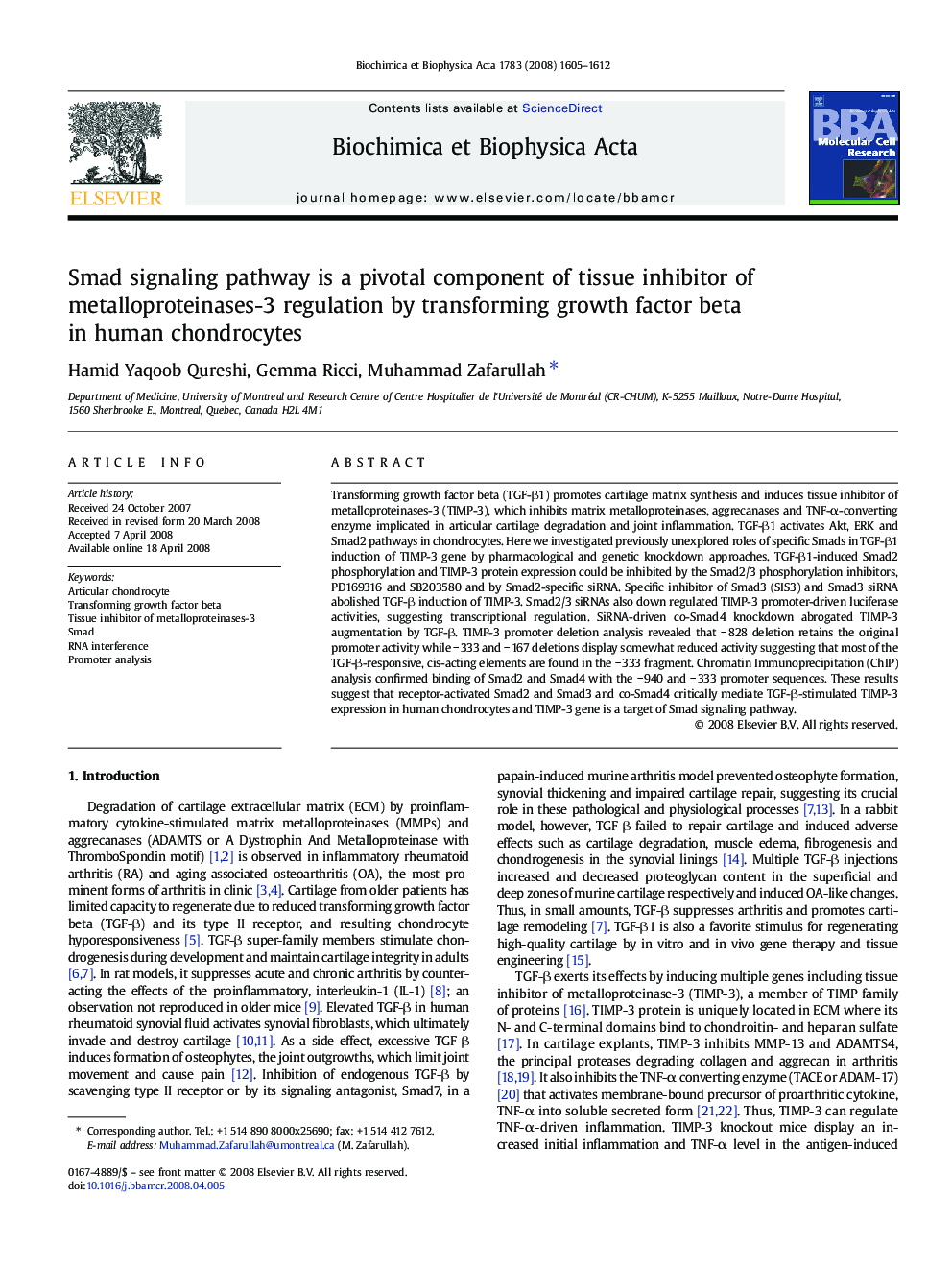| Article ID | Journal | Published Year | Pages | File Type |
|---|---|---|---|---|
| 1951261 | Biochimica et Biophysica Acta (BBA) - Molecular Cell Research | 2008 | 8 Pages |
Transforming growth factor beta (TGF-β1) promotes cartilage matrix synthesis and induces tissue inhibitor of metalloproteinases-3 (TIMP-3), which inhibits matrix metalloproteinases, aggrecanases and TNF-α-converting enzyme implicated in articular cartilage degradation and joint inflammation. TGF-β1 activates Akt, ERK and Smad2 pathways in chondrocytes. Here we investigated previously unexplored roles of specific Smads in TGF-β1 induction of TIMP-3 gene by pharmacological and genetic knockdown approaches. TGF-β1-induced Smad2 phosphorylation and TIMP-3 protein expression could be inhibited by the Smad2/3 phosphorylation inhibitors, PD169316 and SB203580 and by Smad2-specific siRNA. Specific inhibitor of Smad3 (SIS3) and Smad3 siRNA abolished TGF-β induction of TIMP-3. Smad2/3 siRNAs also down regulated TIMP-3 promoter-driven luciferase activities, suggesting transcriptional regulation. SiRNA-driven co-Smad4 knockdown abrogated TIMP-3 augmentation by TGF-β. TIMP-3 promoter deletion analysis revealed that − 828 deletion retains the original promoter activity while − 333 and − 167 deletions display somewhat reduced activity suggesting that most of the TGF-β-responsive, cis-acting elements are found in the − 333 fragment. Chromatin Immunoprecipitation (ChIP) analysis confirmed binding of Smad2 and Smad4 with the − 940 and − 333 promoter sequences. These results suggest that receptor-activated Smad2 and Smad3 and co-Smad4 critically mediate TGF-β-stimulated TIMP-3 expression in human chondrocytes and TIMP-3 gene is a target of Smad signaling pathway.
